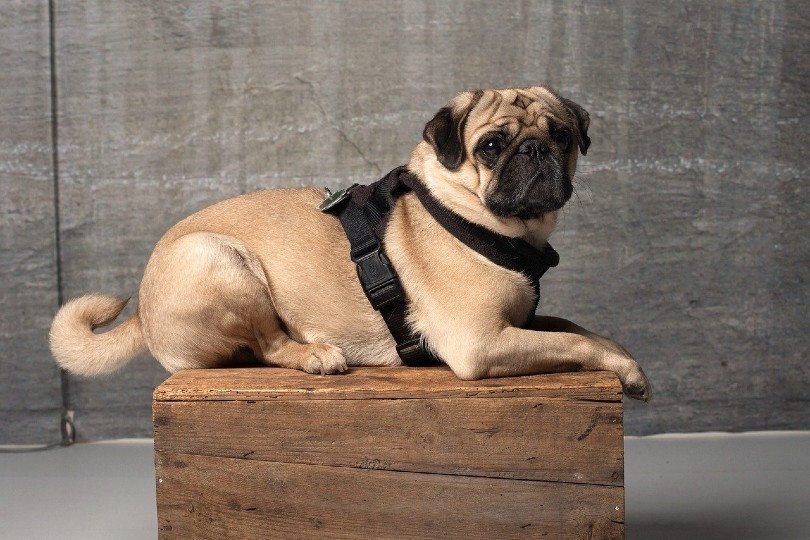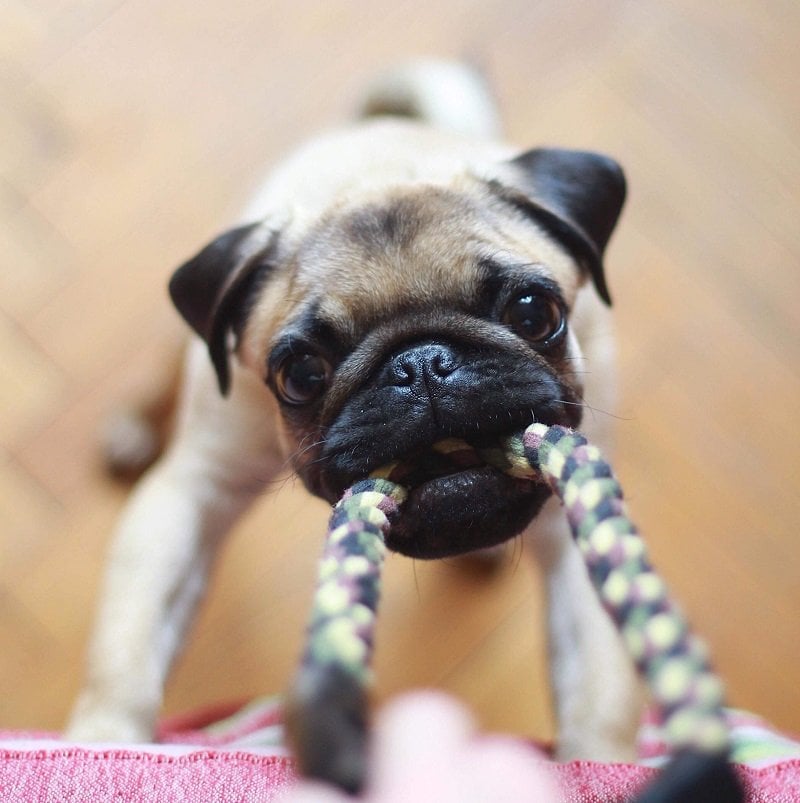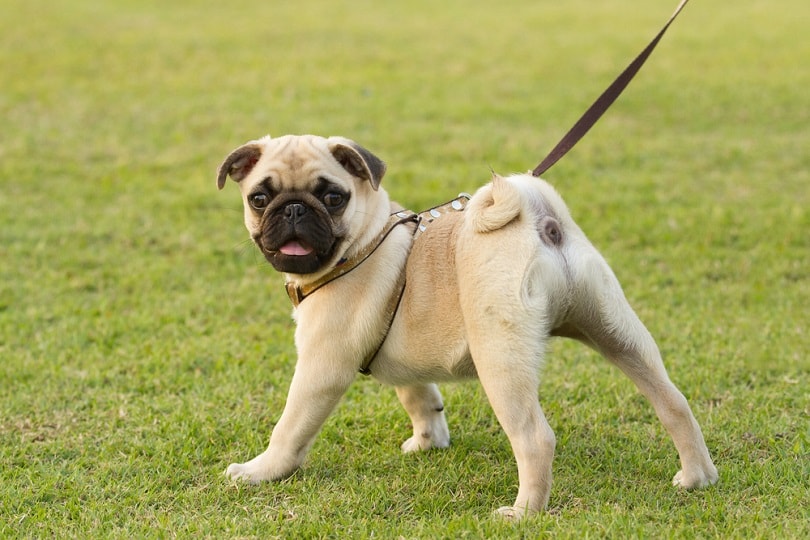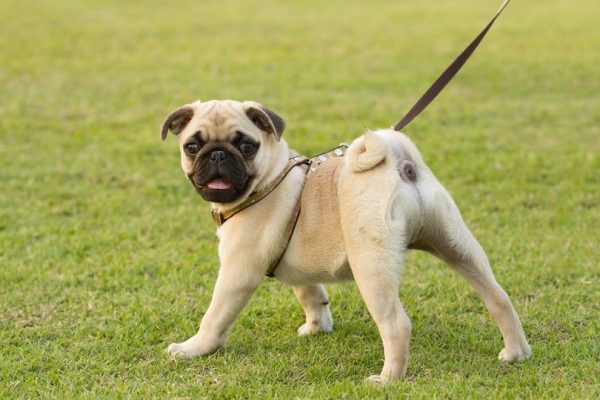Pugs are those adorable, flat-faced, snorty dogs we all know and love. You see them everywhere, and sometimes you hear them before you see them thanks to their brachycephalic faces. The popularity of Pugs may have led you to wonder if they actually make good pets. The answer is a resounding “yes!”
Many dog breeds become popular for their appearance and then end up in shelters because people were ill-prepared for the needs of the breed. Pugs have been around for about 2,000 years, so obviously there’s something to be said for the humble Pug, right?
Do Pugs Make Good Pets?
Pugs are the 29th most popular dog breed out of 195 breeds, so there’s obviously something there! Pugs can make great pets for homes that understand their needs.1 They are playful, curious, and comical dogs, albeit a bit dramatic, especially when it comes time to trim their nails. Pugs are known for making wonderful pets for all kinds of people and home environments. They are friendly dogs that get along well with everyone, including strangers, so don’t count on a Pug to be a good guard dog.
They are mischievous dogs that are highly adaptable and loving. They want to spend their time with you and are happy to go on any adventure you’ll take them on. However, it’s important to keep in mind that Pugs do have short snouts, which can make breathing hard. As time has gone on, irresponsible breeding practices have continued to flatten Pugs’ faces, making them intolerant of heat and strenuous exercise. They do not make good hiking or jogging partners and aren’t the best option when it comes to sports either.

What Type of Home Are Pugs Suited for?
These adaptable dogs are great for many types of homes. They are generally great with children and may be gentle enough to be around smaller children. They make good companions to the elderly, especially since they tend to have low exercise requirements. Pugs are well-suited for so many types of environments, that the real question is what type of home aren’t Pugs suited for?
Pugs are not a good option if you are looking for a highly active dog that can keep up with strenuous exercise and sports. They have a very low heat tolerance, so they are limited to very short outdoor sessions once temperatures hit around 70˚F. They are not dogs that should be left outdoors for extended periods of time and attempting to push them further in warm temperatures can lead to heat stroke and death. If you are looking for an athletic dog for sports or strenuous activities, then Pugs probably aren’t the best option for you.
How to Choose the Right Pug

Choosing a Pug can be a difficult task. Their cute appearance and popularity have caused puppy mills, backyard breeders, and overall irresponsible breeders to take up Pug breeding. Breeding for shorter and shorter snouts is an irresponsible breeding practice that ends up with the dogs experiencing life-long health problems. Finding a breeder can be difficult, but there are a few things to look for.
Avoid purchasing a Pug from a pet store, period. Responsible breeders don’t send their puppies to pet stores to find homes. Pet store puppies come from backyard breeders and puppy mills. You want to look for a breeder that has titled dogs, whether they are titled in the show or some variety of obedience or sport. The National Breed Club for Pugs recommends breeders have their breeding dogs hip and knee certified, cleared by a veterinary ophthalmologist, and tested for Pug Dog Encephalitis, which can be passed to puppies. Breeders that are recommended by the National Breed Club and the AKC are often good starting points to find reliable, responsible breeders.
Summary
Pugs are wonderful dogs that can be rewarding companions with proper training and care. Many people don’t train small dogs, believing it isn’t important, but training your Pug can lead to a strong bond between you and help you have an overall happy, well-behaved dog. Proper socialization at a young age is important, and exposure to games, toys, and low-impact exercise can help you ensure your Pug stays healthy. Pugs are prone to overeating and obesity and keeping them at a healthy weight will help keep their joints healthy and prevent further breathing difficulties. Plan to talk with your veterinarian about a healthy diet and proper portioning of food for your Pug before you bring it home.
Related Reads:
- What Were Pugs Bred For? History of the Pug
- Best Harnesses for Pugs This Year
- Cool & Fun Facts About the Pug Dog Breed
Featured Image Credit: Praisaeng, Shutterstock









